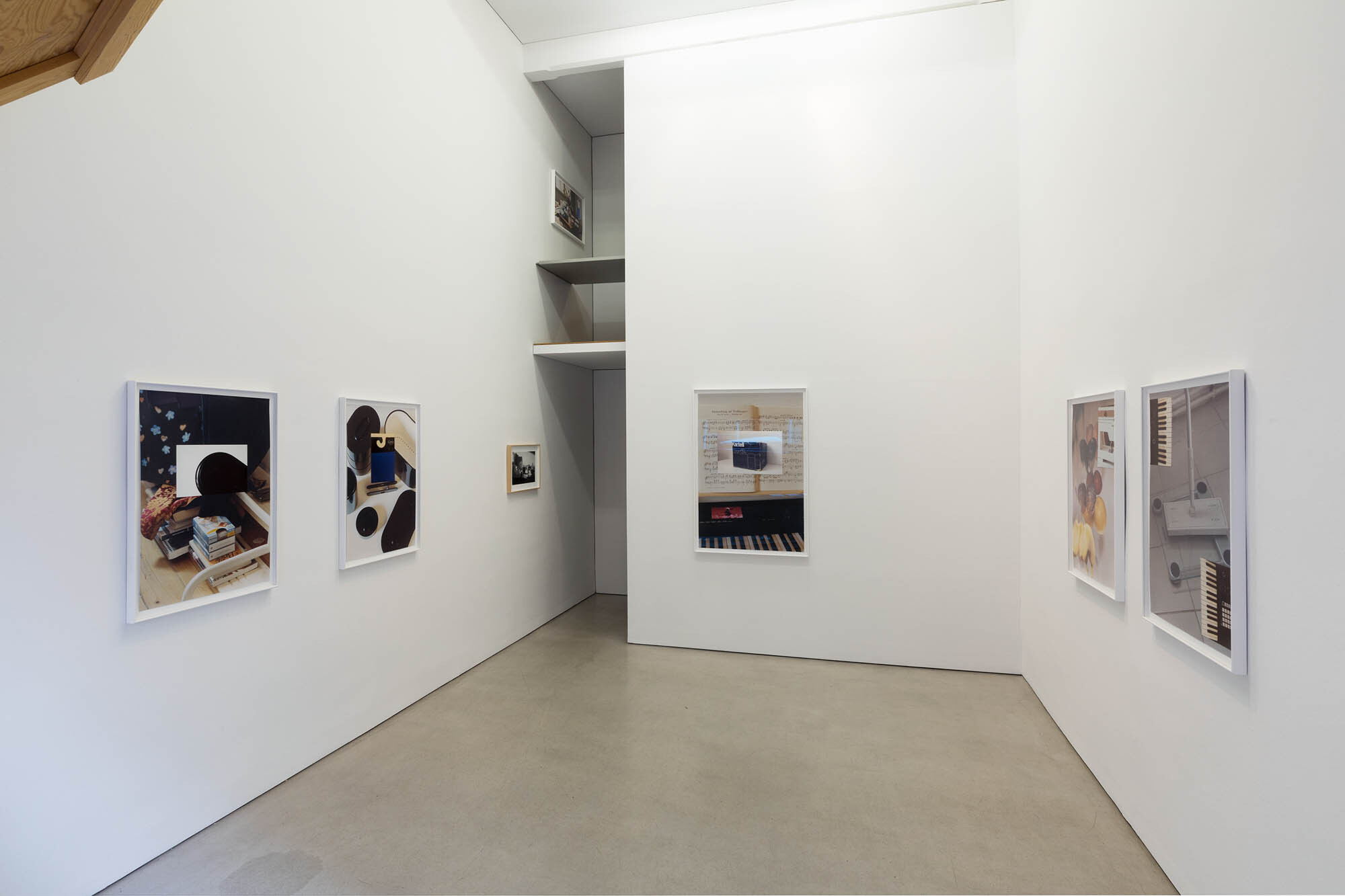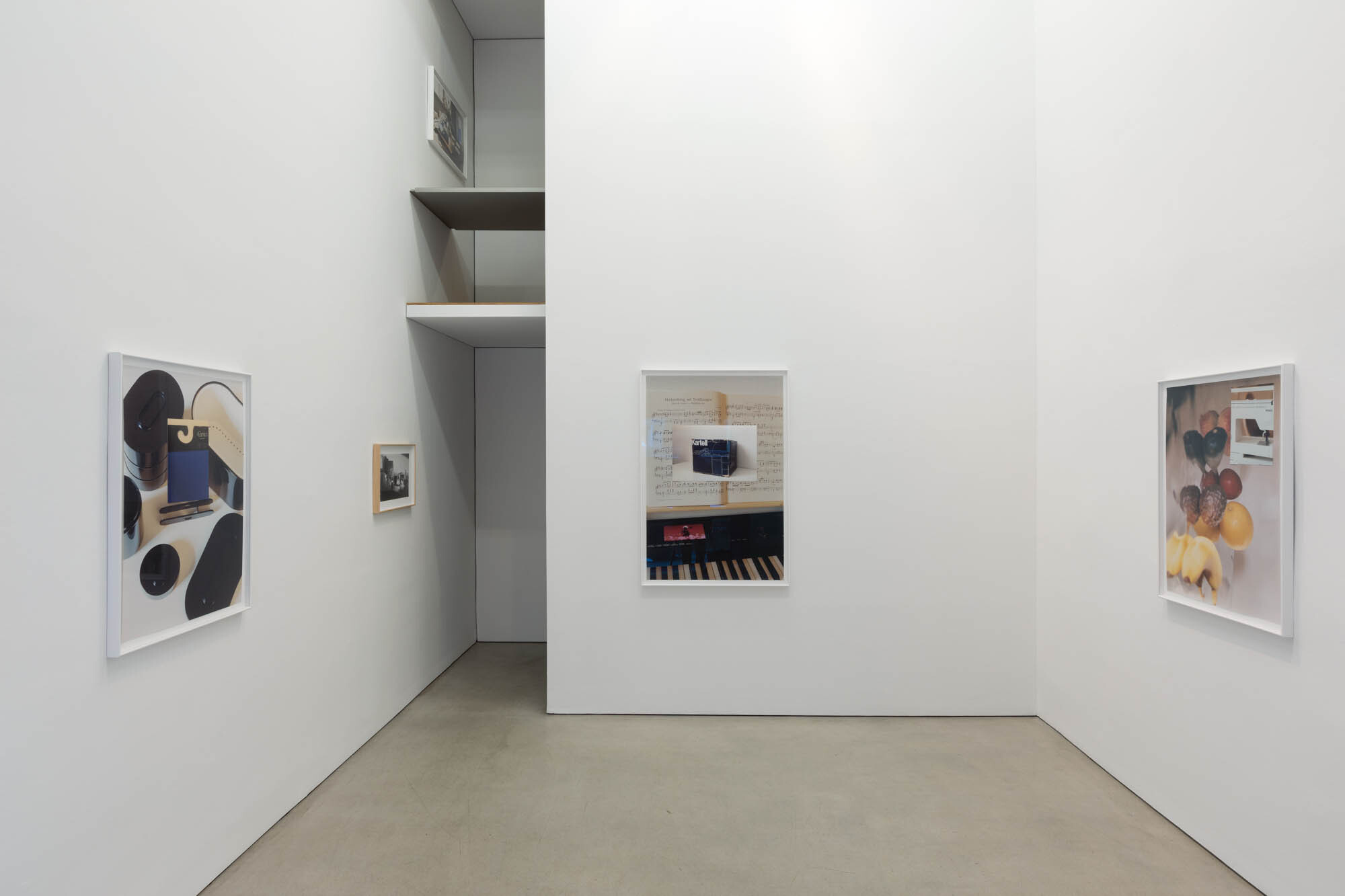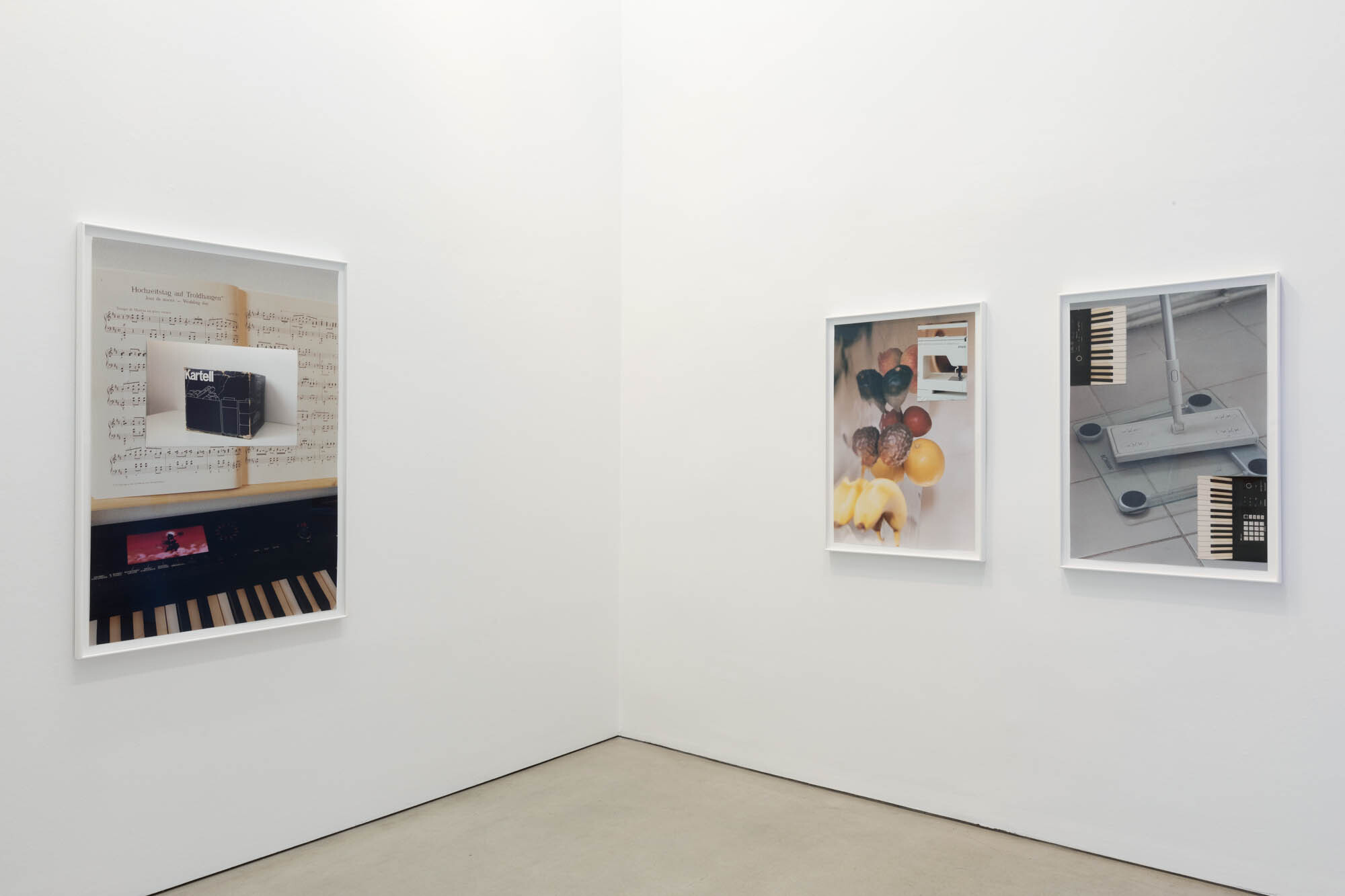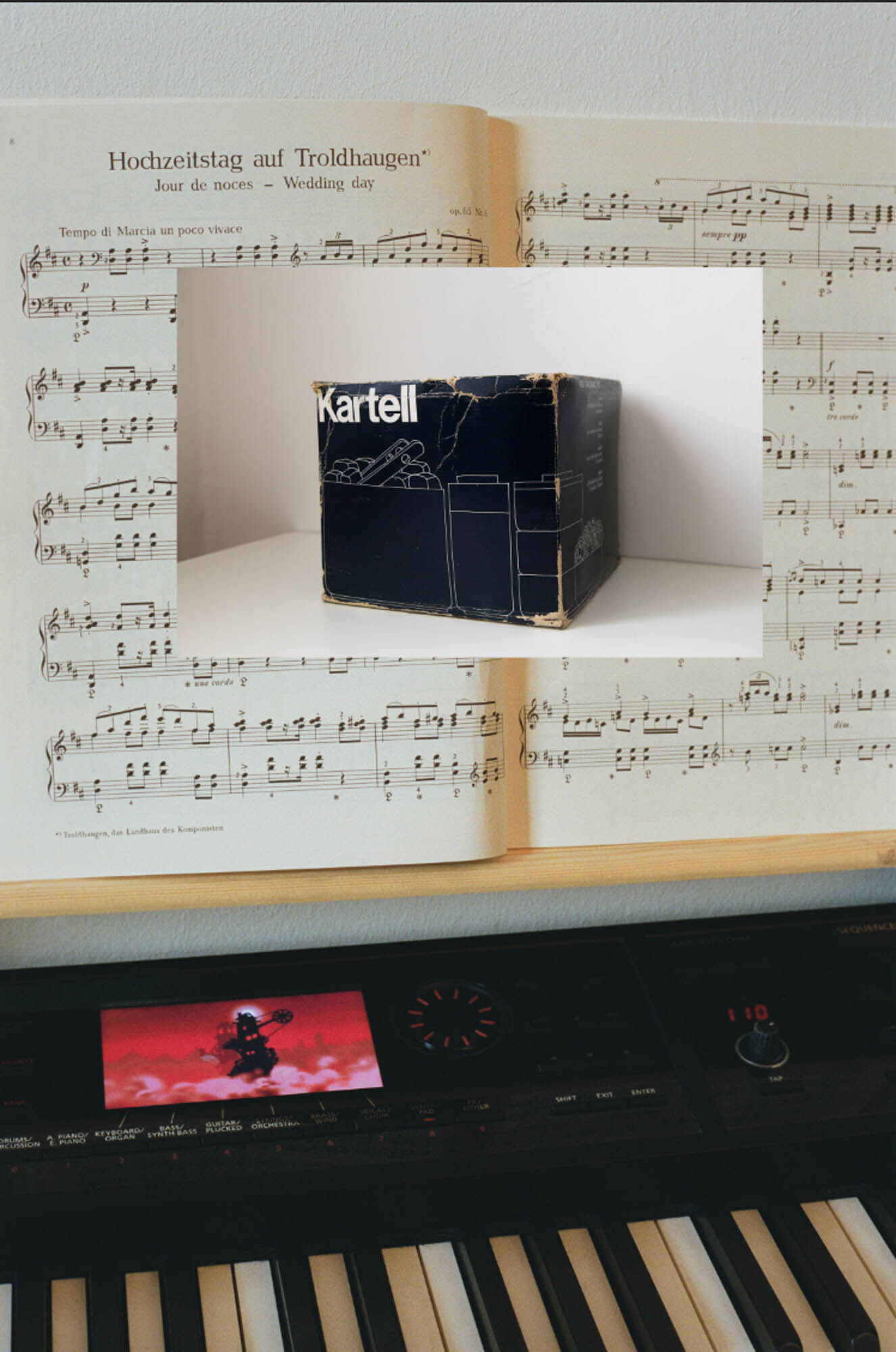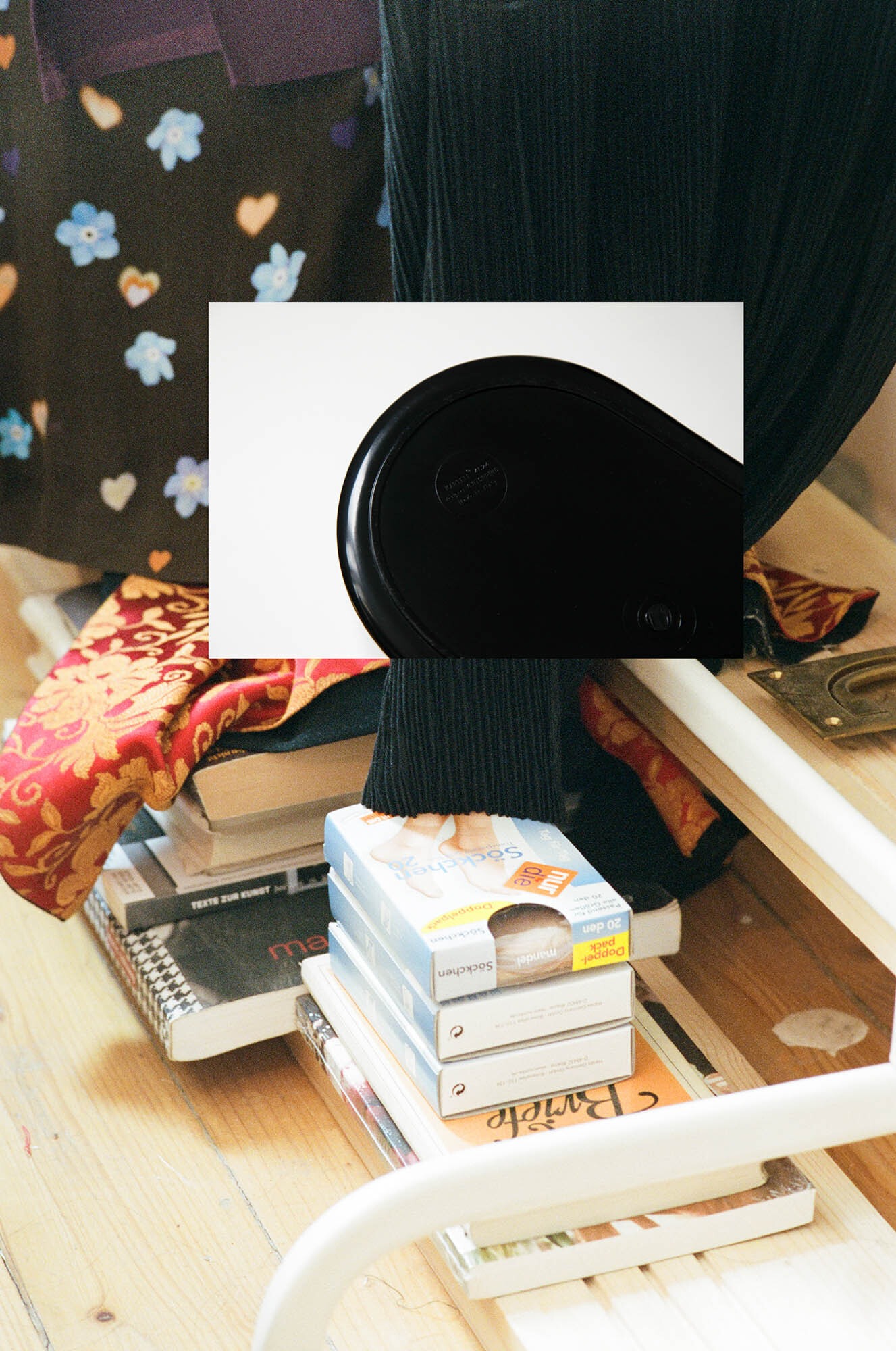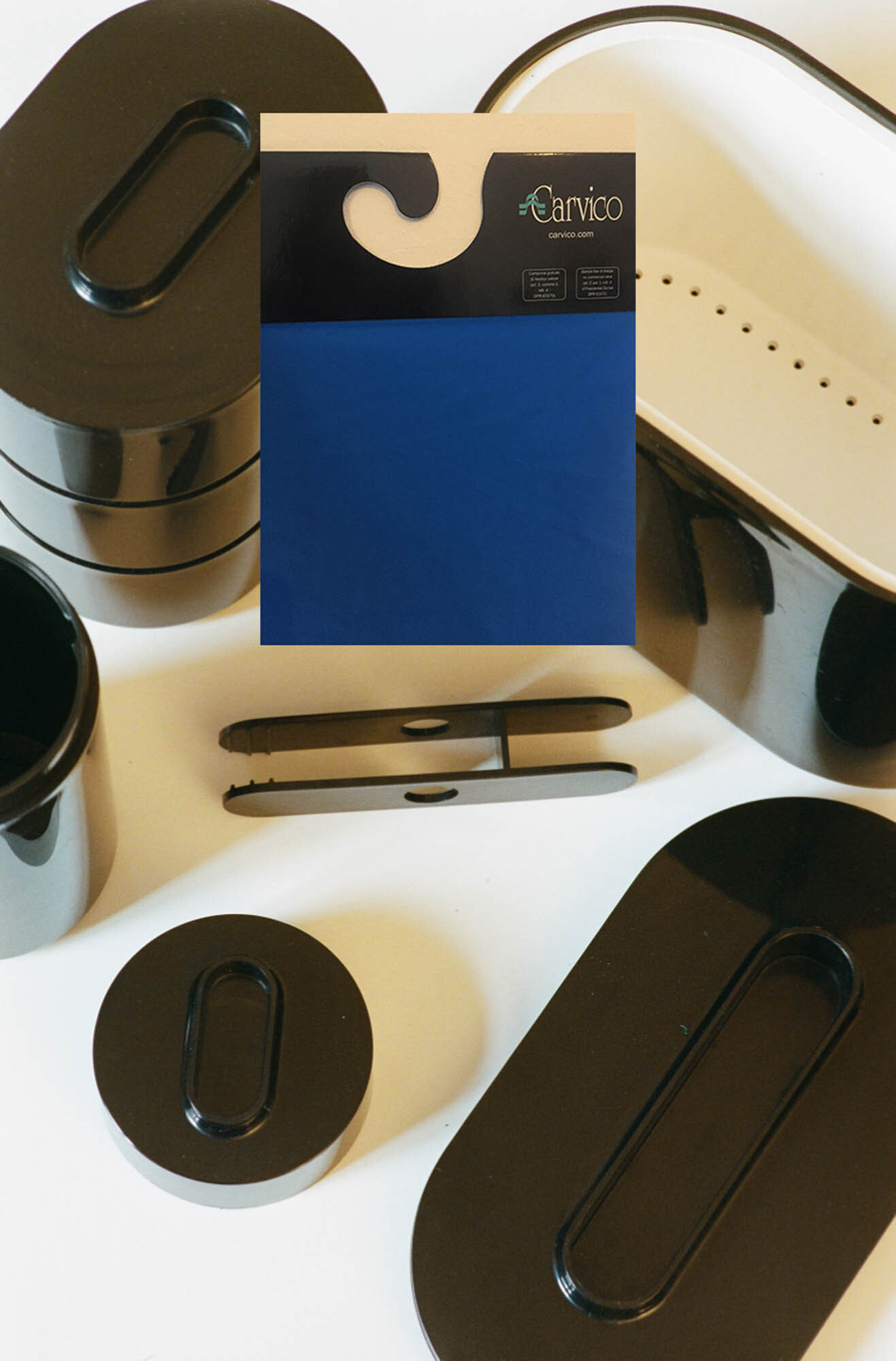—
Rosa Rendl
Kartell
The Lonely Boys (Daphne Ahlers & Rosa Rendl) often address an absent counterpart in their deeply melancholic songs. It is a fantasizing, haunting, imploring that calls out from an inner space. Alone. In the world. In Surrender1, for example, with lines like “stuck in this moment forever” and “I will stay awake until I don’t miss you”. Particularly in Surrender, the melancholy figure is stretched so thin and siphoned through electronic stylistic devices into an atmospheric vortex, that it yields a lament song of the kind not seen in the recent decades of pop history. The emotions are expressed with such intense immediacy that it raises the question of at what point too much authenticity becomes a concept. In Cry too much2 we hear the line “In a world unknown to us, they say we cry too much” - a statement clearly depicting alienation, separation, but also a commitment to the expression of feelings, indeed to rather an excess of feelings. The inevitable assumption here too is that the position spoken from is decidedly feminine. If we conclude that the dimensions of the affective expand until it seems like a conceptual focal point, then the feminine position also becomes political, since feelings are always interwoven with our assumptions of the world. Emotions, as melancholy, become a method precisely because they challenge reality. Nevertheless, they remain indeterminate and in this sense, free of irony. By understanding how authenticity in the form of emotions is articulated in the work, a corresponding experience of otherness can occur, from which one can speak to others.
Against this background, and so far only touching on one of the artist’s many projects - Rosa Rendl has a solo musical practice alongside Lonely Boys and runs a swimwear label bearing her own name - conclusions and parallels can be drawn with her photographic work. The music is, so to speak, the entrance. In fact, to all the aforementioned activities.
First and foremost, all the photographs were shot in the artist’s apartment and exclusively depict objects in the artist’s possession that are in almost daily use. Another detail is that most of the photographs were shot on analog film - some of the smaller, collaged photos were taken with a digital camera and/or mobile phone. The technique is self-acknowledged as unimportant for the conceptual basis of the photographs. Of more importance is the choice of paper and print stock, hand-printed on extremely matte, almost poster-like paper. The prints hang loose in their frames.
All but one are photo collages comprising at least two photographs and thus set in direct conversation with one other. Transparent bathroom scales with a mop, for instance, collaged with two images of Rendl’s keyboard keys (Bomann, 2019); a table that might function equally for working or dining, bearing a still life of withered flowers, protective frame casing, piles of paper, and myriad other everyday tools confronted with the image of a dressmakers dummy wearing a blue skirt from her collection (Table Still Life, 2019). Confronting is not quite the right word here, the gesture might best be described as summating. Particularly the still lifes as well as the combinations of photographs, in their immediacy, relate to Wolfgang Tillman’s earlier works. Like in his work, subcultures and collaborations visually resonate through this relationship, but they appear a lot tighter and more factual in Rendl’s work. By depicting her immediate surroundings, framed as though she were looking around in a quiet moment, a kind of melancholic, almost empty gaze emerges. Although they speak of all that is productive, inspired, and collaborative, the objects and situations remain strangely dull in their visual expression and outrightly deny their significance. The meaning they acquire has to batter down against the vagueness of the aesthetic object. Subjectivity is represented here as emptiness, as a potentiality.3 Nevertheless, the artist is well aware that if she inscribes herself and her history into her work, she only re-produces what she already provided at the outset. Thus, some of the works also convey her history, such as the eponymous work Kartell (2019), which depicts a designer cocktail set inherited from her grandparents which she has to this day refrained from using. The set, in part, symbolises her family history in which productivity and design played a major role, and also the subsequent loss of this, as well as her own engagement in this field (Cocktail Set, 2019). This aspect finds its way into the exhibited works in several variations. This unexpected, psychoanalytically charged aspect sits alongside objects of less historical relevance that relate more to the artist’s productivity and spirit. In the images themselves, all things are negotiated equally, all excessively soberly. Which raises the question of what specifically Rendl is really bringing to the table here, based on the mediated nature of her work. I think it’s an awareness of being able to inscribe herself into preexisting visual languages and the diverse demands on the artist-subject, and to use this knowledge prudently, only as is necessary. It’s an okayness with one’s own productivity, which stems from decidedly emotionally motivated activities.
This brings up a kind of kinship to Josephine Pryde’s work, who says: “That kind of blithe, ingenuous positivity and way of moving forward, that critique-free zone, becomes interesting. Why though? Is it just the chance to be happy and unafraid? Rather than trying to say art is very good and clever and can achieve its critique, the fascination with fashion modes is about not achieving that critique—it’s about not achieving the object of the criticism in an obvious way. On the other hand, to put it more simply, all this fantastic image stuff and style and the consumer world can leave me very confused and over-excited, and making my own photographs is quite a good way for me to try to stay calm.”4 In this sense, Rosa Rendl’s photographs convey a very calm, conscious and particular manner of investment in methods and concepts, tagging themselves and others with an “okay”. The super-personal thus becomes accessible. The method applied here is very similar to how Lonely Boys operates, just the flip side of the melancholy coin, so to speak. The Lonely Boys make the exaggerated, almost obsessive focus on emotions productive, whereas it is rather the sobriety of the inspired factual in her photography, an almost talking-about-nothing-ness - “stuck in this moment forever” - that sets things in motion for Rendl.
Biography
born 1983 in Baden, lives and works in Vienna
Solo and Duo Exhibitions
2023
YOU YOU/REJECTION (with Ketty La Rocca), MLZ Art Dept, Triest
2022
Colour Charts, Georg Kargl BOX, Vienna
2019
Rejection, Kunstraum Weikendorf, Kunst im Öffentlichen Raum Niederösterreich, Weikendorf
Kartell, Georg Kargl BOX, Vienna
2018
Opportunity Lover, Kunstwerke - Institute for Contemporary Art, Bob´s Pogo Bar, Berlin
Vilgefortis, Lonely Boys and Battle-Ax, Cordova, Barcelona
2017
Playing, Gillmeier Rech, Berlin
Concerts of Coreality, Lonely Boys, Sandy Brown, Berlin
2016
Holy and Repulsive, Lucas Hirsch, Düsseldorf
2015
What You Desire, Belvedere21, Vienna
2014
How Alive Are You, Bar Du Bois, Vienna
Selected Group Exhibitions and Performances
2025
Being a Girl*!? From Panel Painting to Social Media, Lentos, Linz
Rosen im Dezember, Lombardi—Kargl, Vienna
2024
Beau Travail, Zirkusgasse, Vienna
You You, curated by Kate Sutton, Lombardi—Kargl, Vienna
Bringing Owls from Athens, Georg Kargl BOX x Callirrhoë, Athens, Georg Kargl BOX, Vienna
Body at Play, Georg Kargl BOX, Vienna
2022
Tipsy Tina, Kunsthalle Exnergasse, Vienna
2021
Posters by artist bands, Fluc, Vienna
GEORG KARGL EDITIONS, Georg Kargl Permanent, Vienna
Stay Brief, and Leave, Fondation Pernod Ricard, Paris
2020
Would You Be Available…, Georg Kargl Permanent, Vienna
Soft View / Privatissime, Neuer Essener Kunstverein, Essen
Attempt at Rapprochement, Georg Kargl Fine Arts, Vienna
The Shop, Georg Kargl Permanent, Vienna
2019
On the New - Young Scenes in Vienna, Belvedere21, Vienna
On the New, Kunstraum Innsbruck, Innsbruck
Performance by Appointment, Georg Kargl Fine Arts, Vienna
Lonely Boys performance, Fri-Art, Kunsthalle Fribourg, Fribourg
Sketch I, Halle für Kunst Lüneburg, Lüneburg
Lonely Boys performance, DAMA Project, Torino
2018
Lonely Boys performance, Roter Salon, Volksbühne, Berlin
Culture Wear, Space31, Berlin
Sunglasses, Sundogs, Paris
2017
Aaahhh!!!, Lonely Boys performance, Paris Internationale, Paris
Selfie Mania, Alte Farbik, Gebert Stiftung, Rapperswil
Ritual, Lambdalambdalambda, Prishtina
A night for lonely boys, Kunstwerke - Institute for Contemporary Art, Berlin
In Awe, Kunsthalle Exnergasse, Vienna
Floating Self, Salzburger Kunstverein, Salzburg
Der Verdienst, 2014-2017, The Oracle, Berlin
How far to open up?, Forum Stadtpark, Graz
2016
The Language of things, Belvedere21, Vienna
Dreaming Dictionary, Skulpturinstitut, Vienna
Boil the Ocean, Bodega, New York
Humble Habits Domestic Monuments, HHDM, New York
2015
White SLR, New Bretagne Belle Air, Essen
BOYS, Lonely Boys performance, Halle für Kunst, Lüneburg
NEW NEEDS, Haus Wittmann by Johannes Spalt, Etsdorf/Kamp
Time to Fill up the Glass, Galerie Crone, Berlin
Lonely Boys performance, Künstlerhaus Halle für Kunst und Medien, Graz
2014
Let’s Mingle, Franz Josefs Kai 3, Vienna
Pcnc_Bay XII, Ve.sch, Vienna
Curatorial
2020
The Shop, Georg Kargl Permanent, Vienna
2016
F-Holes, Humble Habits Domestic Monuments, co-organized with HHDM, New York
2015
New Needs, co-curated with Isabella Ritter, Haus Wittmann by Johannes Spalt, Etsdorf/Kamp
Grants / Residencies
2025
Artist Residency, London
2022
State Scholarship for artistic photography, Austria
2016
Recognition Award for Fine Arts, City of Baden
2016
Artist Residency, New York
2012
Artist Residency, Cité des Arts, Paris
2010
Unit-F Editorial Award
Start Scholarship for artistic photography, Austria
Publications
2021
The logic of Intuition, edited by Attilia Fattori Franchini, published by von Georg Kargl Fine Arts
Opportunity Lover, Solo Album, released at Seayou Records
Projects
since 2010 LONELY BOYS - performance duo with Daphne Ahlers
since 2013 RENDL – swimwear label
Inquiry
Please leave your message below.
